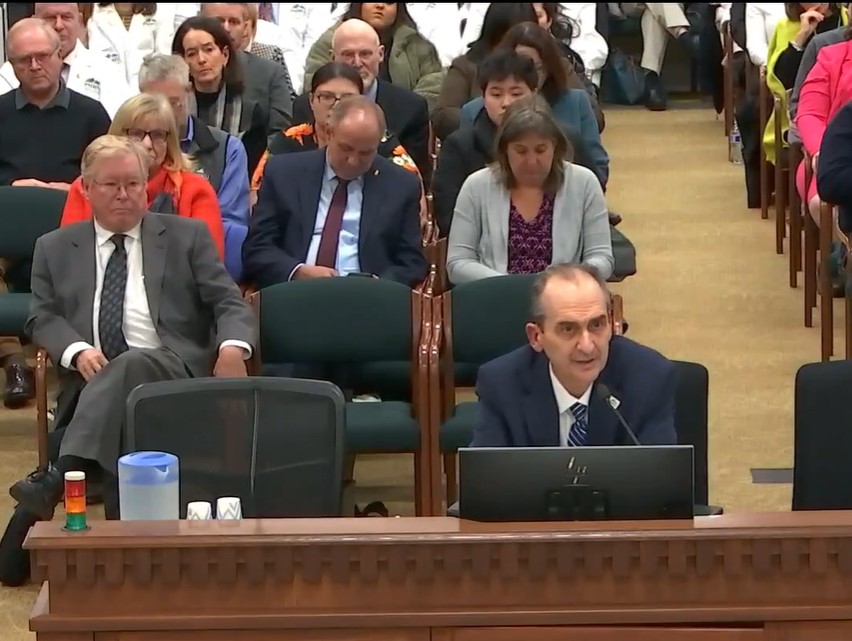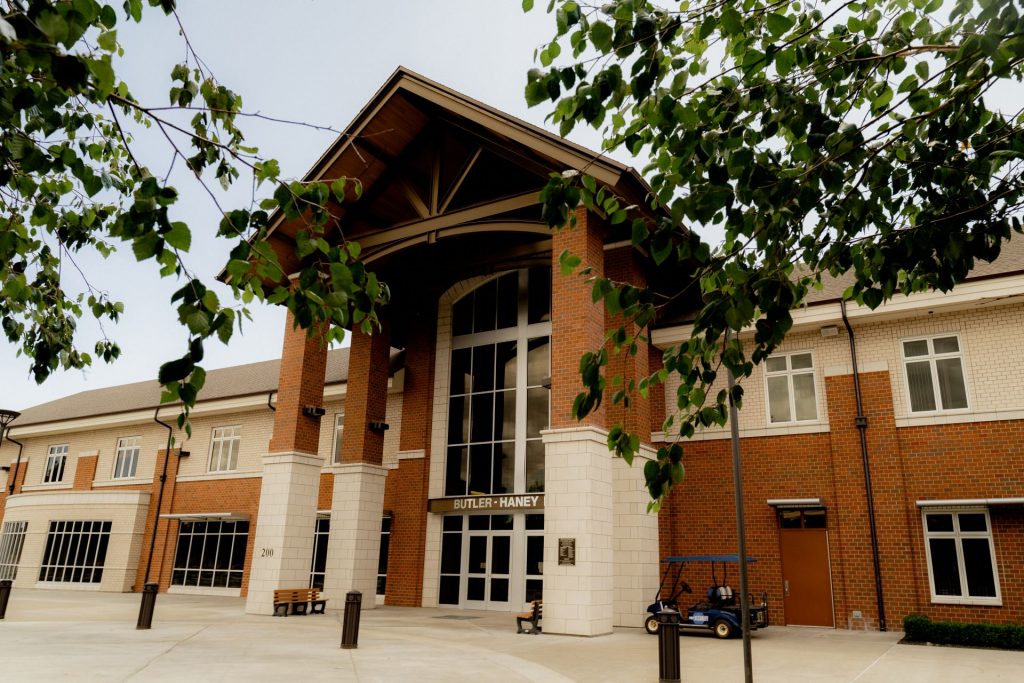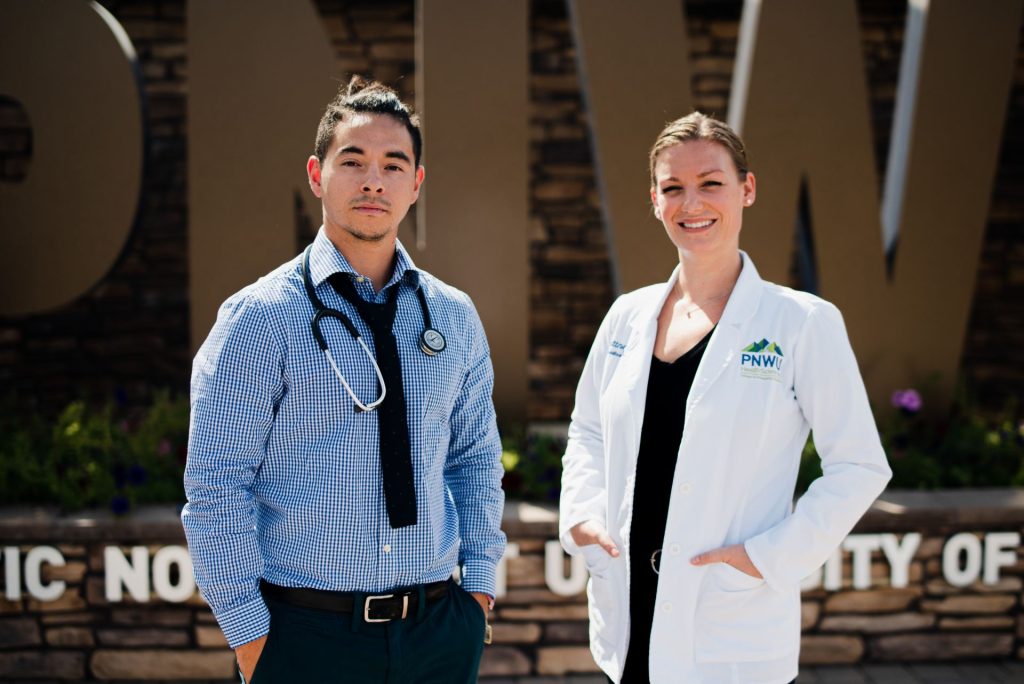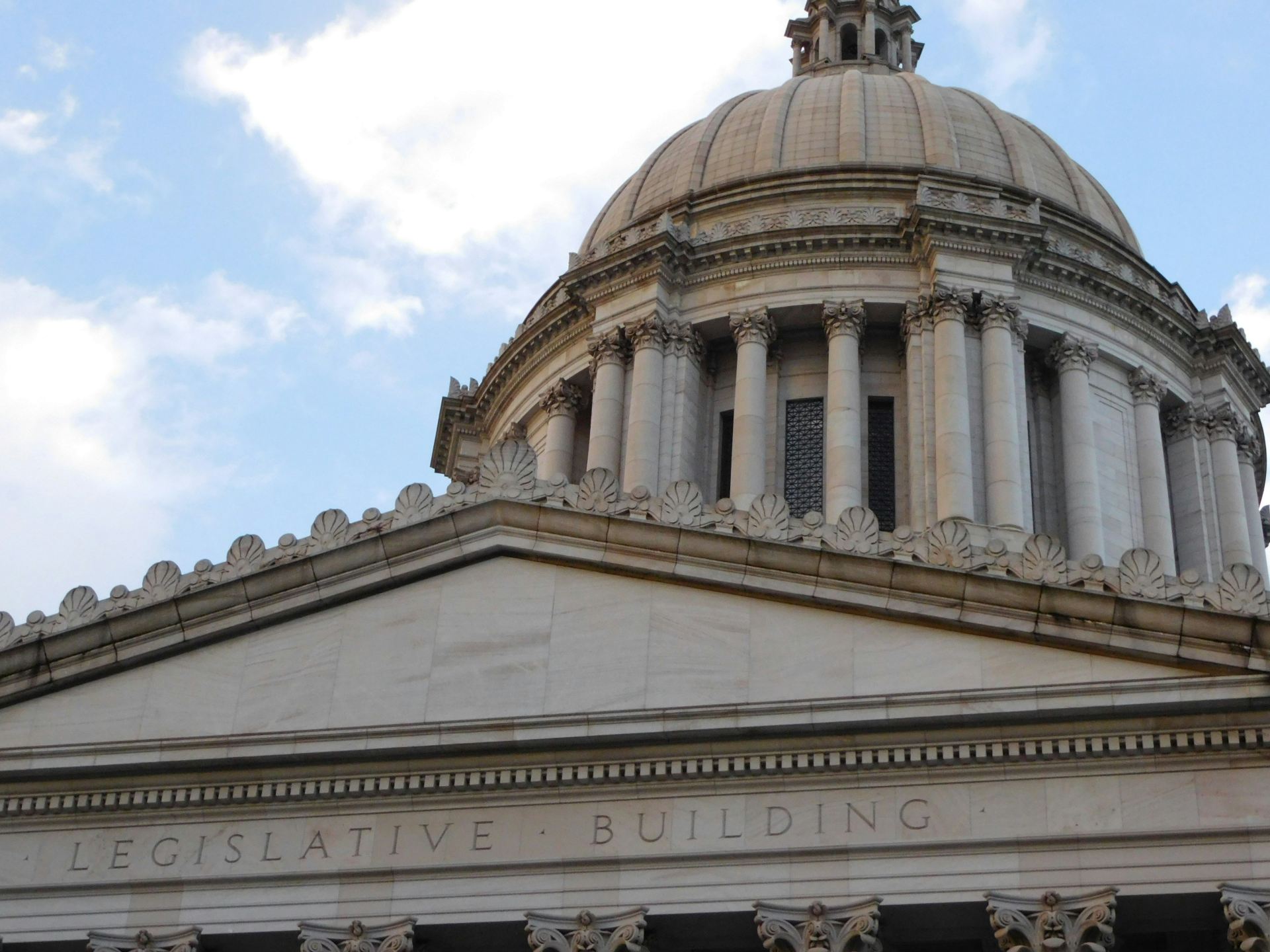On January 16, 2024, PNWU President Michael Lawler, PhD, was invited to the Washington State Capitol to update the State’s Healthcare & Wellness Committee on the success of our university, the immense impact our graduates are having on Washington, and the vital role our programs will continue to have in improving the health of communities throughout the Northwest.
Dr. Lawler’s speech to the Committee is copied below:
Chairperson Riccelli, members of the State of Washington’s House of Representatives Health Care and Wellness Committee, citizens, colleagues, and friends. I am Dr. Michael Lawler, President of Pacific Northwest University of Health Sciences (PNWU) in Yakima, Washington.
With pride, I am here to provide an update of our mission-based work at PNWU.
I thank you for the $5M allocation this past year to help us build space for our School of Dental Medicine. This gift is remarkable recognition from the State, and we are full of gratitude for your generous support and faith in PNWU.
From our humble view, these funds from the State of Washington declare that PNWU is a public good, deserving of public support. We could not be more grateful.
In 2005, nineteen years ago, Dr. Lloyd Butler, a physician in Yakima, along with several other community leaders, sought your support with nothing more than an outrageous dream – to address healthcare needs in rural and medically underserved communities by creating a health sciences university in Yakima, Washington. Thankfully, you believed in us, and delivered bi-partisan support through formal letters of encouragement, including a letter from our member of Congress at that time, the Honorable Jay Inslee.
With your assurance, the dream became our mission to serve rural and medically underserved communities of the Pacific Northwest. In an empty lot in Yakima, and with the support of the Yakama Nation, we built this mission-based health sciences university and are now recognized nationally for delivering mission-based outcomes.
This year, among the 192 United States medical schools (both Allopathic, MD, and Osteopathic, DO), our College of Osteopathic Medicine is ranked by US News and World Report in the top ten for three categories.
For this national success, I recognize today all of you who have made these rankings possible.
We have tremendous partners who believed in PNWU as we developed the University, including MultiCare Health System and Premera Blue Cross. Additionally, we thank the hundreds of practicing healthcare providers across Washington who assist with the clinical education of PNWU students.
I ask all PNWU students, faculty and staff in the room today to stand with me in recognition of support from the State of Washington and our numerous community partners (ask all from PNWU to stand and applause).
From the strength and success of the College of Osteopathic Medicine, we have extended the dreams of our founders and the Washington State Legislators by expanding the University with additional Schools and programs to generate other critical members of the healthcare team.
Like the College of Osteopathic Medicine, our School of Physical Therapy, School of Occupational Therapy, and School of Dental Medicine look to revolutionize community health through equitable access to care for rural and medically underserved communities.
Our Master of Arts in Medical Sciences program offers additional preparation for students who are interested in applying to graduate health sciences programs.
To encourage the dreams of younger students, we are proud to have created the Roots- to Wings program, a transformative co-mentoring health sciences education pathway for Native American and Latinx students in grades 6 through 12. In this program, students in the community and at PNWU learn from each other.
Additionally, Washington State University’s College of Nursing and College of Pharmacy and Pharmaceutical Sciences have satellite campuses at PNWU, allowing numerous opportunities to collaborate with WSU, regionally, and statewide.
In fact, we partner with WSU, Heritage University, and Central Washington University for the Northwest Interprofessional Health Collaborative, which develops programs for interprofessional healthcare practice. Tne future of healthcare is team-based and we want to prepare our students, especially those who will be in rural and medically underserved communities, to work across disciplines in caring for communities.
Medical-dental integration has been a point of discussion in healthcare for years, yet nationally we have made modest progress in treating the oral cavity alongside the rest of the body. Further, dentists are distributed unevenly across the country and the state, especially in rural and medically underserved communities.
Thus, PNWU developed a nationally unique model to create primary care dentists through partnerships with Federally Qualified Health Centers (FQHC). In this model, our students will spend time learning their craft at the PNWU campus, and at three FQHCs in the State of Washington – Yakima Valley Farmworkers Clinic, Yakima Neighborhood Health Services, and Sea Mar Community Health Centers.
The generous funding from the State of Washington will help build classrooms and laboratories for our dental medicine students on our Yakima campus. The inaugural class of the Doctor of Dental Medicine is expected to start in Fall 2025.
In addition to the State of Washington, I acknowledge the generous support from our colleagues at Delta Dental of Washington, and the Washington State Dental Association. We also appreciate the collaborative opportunities with the University of Washington’s School of Dentistry.
Our dreams are becoming reality because the community shares these dreams, committing their good will and expertise to our grassroots, non-profit university in Yakima, Washington.
A key source of this community support comes from the PNWU Board of Trustees, community leaders who donate their time to help guide the university. At PNWU, our Board is outstanding and a major reason for our success.
Today, we have Board members in the room, and I will ask them to stand as I call out their name: John Vornbrock, Priscilla Cadwell, Karen Hyatt, and Karen Ireland.
To date, PNWU has graduated 1,375 Doctors of Osteopathic Medicine and a majority of them practice in the Pacific Northwest, mostly in primary care.
Next year, our inaugural classes of Doctor of Physical Therapy and Master of Science in Occupational Therapy will graduate, and we expect similar levels of service in the region.
Esteemed colleagues, It has been an honor visiting with you today.
Because of you, PNWU is moving forward with strength and mission.
Thank you very much!



Header photo by Peter Robbins on Unsplash
